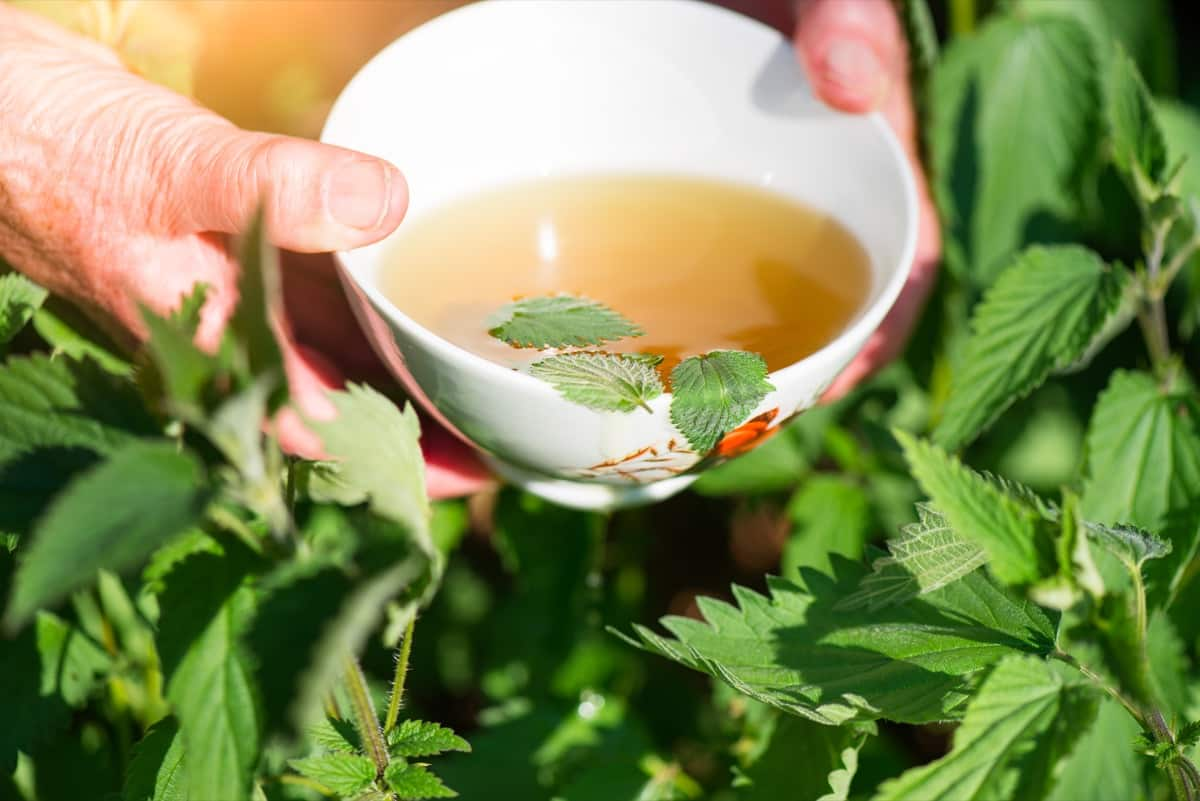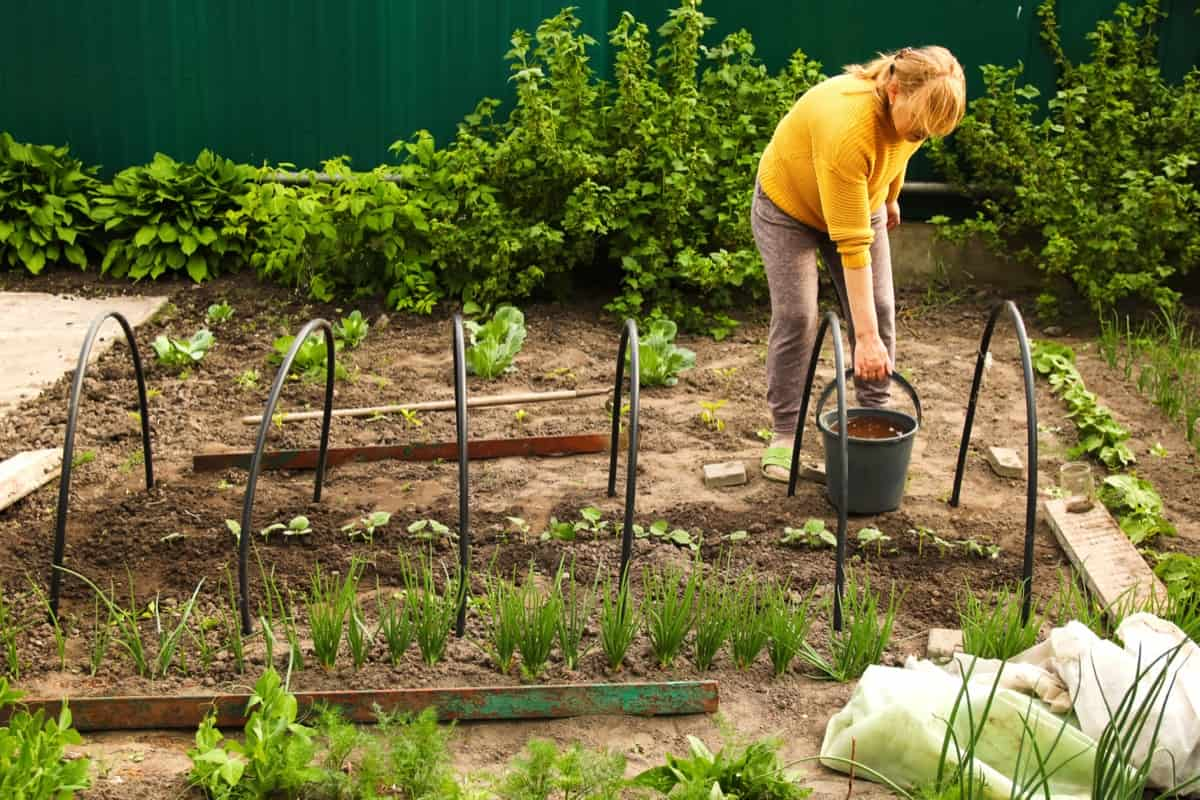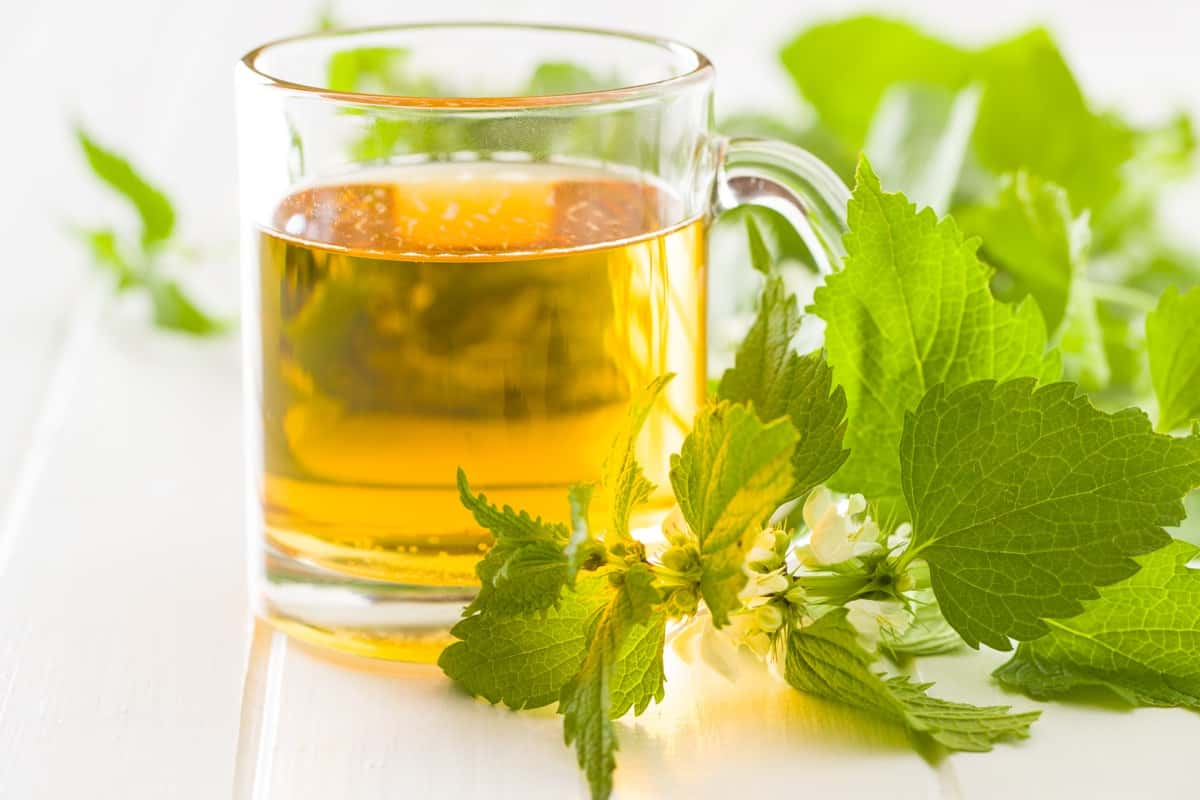Using nettle tea in your garden can greatly benefit your plants. It contains high levels of nitrogen, potassium, calcium, iron, and other important minerals for optimal plant health. Nettle tea fertilizer is an all-natural solution derived from stinging nettles that offers numerous benefits to your garden’s plants.

Homemade DIY Nettle Tea Soil Fertilizer
What is Nettle Tea fertilizer?
Nettle tea, derived from the stinging nettle plant (Urtica dioica), is a natural fertilizer that gardeners have used for centuries. This powerful fertilizer provides essential nutrients to plants, acting as a food source that promotes healthy growth.
What Are the Ingredients Needed to Make Nettle Tea?
- Nettle tea is easy to make at home with just a few ingredients: fresh nettle leaves or dried nettles, water, and a container or bucket. Simply steep the nettles in water for several weeks until they ferment into a rich liquid fertilizer.
- You’ll need fresh stinging nettle leaves. These can be abundant during the spring and summer months when the plant is fully grown.
- Next, you’ll need water, as tap water may contain chemicals that could harm your plants. Rainwater is also better for our environment since it doesn’t contribute to water waste.
- Grab a large container or bucket to brew your nettle tea in. It should be big enough to hold all the ingredients comfortably.
Recipe/Prepare Nettle Tea at Home
- Wear gloves to protect yourself from the stinging hairs on the nettle leaves. Choose young, healthy plants and snip off the top few inches using scissors or pruning shears.
- Take a large bucket or container and fill it with water. You’ll need approximately 10 liters of water for every kilogram of nettle leaves.
- Place the freshly harvested nettle leaves into the container filled with water. Make sure they are fully submerged.
- Cover the container with a cloth to allow airflow while preventing debris from entering. Please leave it in a sunny spot for about two weeks, stirring occasionally.
- After two weeks, strain out all remaining plant material using cheesecloth or a fine mesh strainer, leaving only clear liquid behind – this is your homemade nettle tea.
How Does Nettle Tea Work?
Nettle tea contains essential minerals like nitrogen, potassium, magnesium, and iron. These are vital for healthy plant growth and development. By providing them to your plants through nettle tea, you’re giving them a natural boost that can result in stronger stems, greener leaves, and vibrant blooms. In addition to minerals, nettle tea contains organic matter that improves soil structure and moisture retention.
This means better nutrient absorption for your plants’ roots and less waterlogging or drought stress risk. Last, nettle tea has been known to deter pests such as aphids and caterpillars due to its slightly bitter taste. While not entirely foolproof against all garden pests, it can protect your precious plants.
What Pests and Diseases Can Nettle Tea Control?
- One of the main benefits of nettle tea is its ability to repel aphids. These pesky little insects can quickly infest your garden, sucking the life out of your precious greens. Regularly applying nettle tea to your plants creates an environment that aphids detest.
- In addition to warding off aphids, nettle tea also has antifungal properties that help prevent diseases like powdery mildew and black spot from taking hold.
- These common plant ailments can leave unsightly marks on leaves and hinder growth. But by regularly treating your plants with nettle tea, you strengthen their immune systems and make them more resistant to these fungal infections.
How Often Should You Use Nettle Tea for Your Plants?
The recommended method is to dilute 1 part nettle tea with 10 parts water and apply it liberally to your growing plants. This ensures that the nutrients from the nettle tea are evenly distributed and absorbed by the roots.
In case you missed it: Homemade DIY Vinegar Spray for Pest and Disease Control: Recipe for Natural and Organic Benefits of Plants

Best Time to Apply and How Much Nettle Tea Should You Use for Your Garden Plants
Nettle tea can be a valuable addition to your gardening routine, providing natural and organic benefits for your plants. To get the most out of nettle tea, applying it every 3 weeks during the growing season is recommended. When preparing nettle tea, dilute 1 cup of tea with 10 parts water before applying it to your garden plants. This ratio allows for proper absorption without overwhelming the roots. Remember, moderation is key when using any fertilizer.
How Long Does It Take for Nettle Tea to Work for Your Plants?
It depends on factors such as plant type, soil conditions, and overall plant health. You can start seeing positive effects within a couple of weeks after applying nettle tea to your plants. The nutrients in nettle tea are readily absorbed by the roots and taken up by the plants. This helps improve their growth, nutrient uptake, and overall vitality.
Benefits of Plants of Using Nettle Tea in the Home Garden
- One of the main advantages is its rich nutrient content, which includes nitrogen, potassium, calcium, magnesium, and iron. These essential nutrients help plants thrive by improving soil fertility and providing the necessary elements for robust plant development.
- Furthermore, nettle tea is a natural pesticide due to its high silica and trace mineral levels. The tea creates an unfavorable environment for these pests while stimulating the production of beneficial microbes that support plant health.
- In addition to pest control, nettle tea enhances the overall disease resistance of your garden plants. It has compounds that boost the immune system of plants naturally. Applying nettle tea to your garden beds or potted plants can reduce the risk of diseases like powdery mildew or fungal infections.
What Plants Benefit from Nettle Fertiliser?
Nettle tea fertilizer is a natural and organic solution that provides numerous benefits to plants in the home garden. This particular fertilizer works exceptionally well on plants that require high levels of nourishment, such as fruit trees and bushes, Roses, annuals, and perennial flowering plants. These plants thrive when given the extra boost of nutrients provided by nettle tea.
Additionally, nettle tea is effective for vegetables like Tomatoes, Leeks, Brassicas (such as Cabbage and Broccoli), Cucumbers, and Zucchini. These crops greatly benefit from the nutrient-rich properties of nettle tea. However, remember that not all plants respond well to nettle fertilizers. Avoid using it on Beans, Peas, Onions, Potatoes, and root vegetables, as they may not thrive with this treatment.
Is Nettle Fertilizer Good for Tomatoes?
Nettle fertilizer, also known as nettle tea, can be beneficial for Tomatoes in your garden. The high nutrient content of nettle tea helps to promote healthy growth and strong root development in tomato plants.
Safety Precautions When Using Nettle Tea
- Always wear gloves when handling stinging nettles or brewing nettle tea. The tiny hairs on the plant leaves can cause painful stings if they come into contact with your skin. Wearing gloves to protect yourself from any potential discomfort.
- Additionally, be cautious when harvesting stinging nettles. Use proper tools like pruning shears or scissors to avoid direct contact with the plant’s stinging hairs. It’s also advisable to wear long sleeves and pants to protect yourself further.
- Store your nettle tea in a labeled container away from children and pets. Although it is natural, ingesting large quantities could lead to digestive issues for humans and animals alike.
How to Store Nettle Tea?
- After brewing the nettle tea, strain the plant material and allow it to cool completely. This will prevent any bacterial growth or fermentation.
- Transfer the cooled nettle tea into clean, airtight containers like glass jars or plastic bottles with tight-fitting lids. Make sure there is minimal air exposure to avoid oxidation.
- Labeling each container with the date of preparation is important so you can keep track of its freshness. This will help you use up older batches before making new ones.
- Nettle tea should be stored in the refrigerator to prolong its shelf life. The cold temperature helps inhibit microbial growth and maintains the potency of nutrients.
In case you missed it: Homemade DIY Molasses Solution Soil Fertilizer: Recipe for Natural and Organic Benefits of Plants

Conclusion
By using nettle tea as a soil fertilizer for your garden plants, you can provide them with essential nutrients in a natural way. This helps promote healthy growth and development while minimizing reliance on synthetic chemicals or additives. Its nutrient-rich composition promotes healthy growth and helps protect against pests and diseases without relying on harmful chemicals or synthetic alternatives.
- Feed Your Flock for Less: Top 10 Tips to Save on Chicken Feed
- Ultimate Guide to Ossabaw Island Hog: Breeding, Raising, Diet, and Care
- Hatching Answers: The Top 10 Reasons Your Chickens Aren’t Laying Eggs
- Eggs and Economics: Breaking Down the Cost of Raising Backyard Chickens
- Defend Your Greens: Proven Methods to Keep Iguanas Out of Your Garden
- Ultimate Guide to Cinnamon Queen Chicken: A Comprehensive Guide for Beginners
- Ultimate Guide to California Tan Chicken: Breeding, Raising, Diet, Egg-Production and Care
- Ultimate Guide to Marsh Daisy Chicken: Breeding, Raising, Diet, and Care
- 10 Types of Chicken Farming Businesses You Can Start for Profits